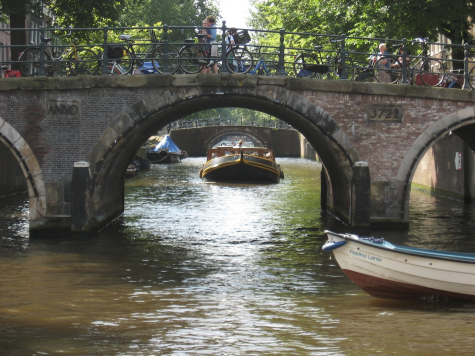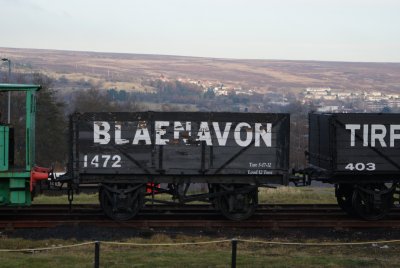Cultural and Historical Geography Research Group
Aberystwyth is a leading centre for research in cultural and historical geography. Members of the group have undertaken extensive research in a number of areas, and we welcome enquiries from prospective research students who are interested in studying in Aberystwyth.
Members: Peter Merriman (Head), Robert Dodgshon (Emeritus), Elizabeth Gagen, Gareth Hoskins, Rhys A. Jones, Mitch Rose, Rita Singer.
Postgraduate members: Rhodri Evans, Elinor Gwynn, Silvia Hassouna, Flossie Kingsbury, Eleri Phillips, Lowri Ponsford,
Affiliated members: Jesse Heley, Rhys Dafydd Jones, Cerys Jones, Hywel Griffiths, Sarah Davies, Mark Whitehead, Michael Woods.
Key Research Themes:
 Landscape and Environment
Landscape and Environment
Advancing theoretical approaches to landscape, exploring the relationship between landscape, culture and identity (Rose), mobility (Merriman), memory (Hoskins, Rose), and time (Dodgshon, Hoskins). Empirical research has been undertaken on the landscapes of the Giza plateau in Cairo (Rose), the mining landscapes of California, South Africa and Wales (Hoskins), the landscapes of driving in Britain (Merriman), the apprehension of Californian landscapes through dance by Anna and Lawrence Halprin (Merriman), urban farms in Detroit (Rose), and the rural landscapes of the Scottish highlands and islands (Dodgshon).
Extensive research has also been undertaken on the cultural and historical geographies of a diverse range of environments, often in collaboration with members of the New Political Geographies research group. This includes research on the environmental history of coal, gold and diamond mining (Hoskins, Whitehead), environmental values (Hoskins), the historical geographies of atmospheric governance (Whitehead), memories of extreme weather events in the UK (Cerys Jones, Sarah Davies), and the environmental impact and resource use of alpine communities (Dodgshon).
 Mobility
Mobility
Aberystwyth is a leading centre for research on the geographies of mobilities, undertaking research on mobile ontologies and movement-space (Merriman), migration (Hoskins, Rhys Dafydd Jones, O'Connor), and the geographies of automobility (Merriman). Research projects have focussed on the geographies of England’s M1 motorway (Merriman), US immigration stations (Hoskins), and the early history of driving in Britain (Merriman).
Members of the group work closely with mobility scholars around the world, as well as playing a key role in the University's Centre for the Movement of People (CMOP).
Materiality, Memory and Heritage
Research focuses on the intersection of themes of materiality, time, memory, heritage, politics and place.
Three members of the group manage the Aberystwyth strand of a major four-year multi-partner project 'Ports Past and Present' (2019-2023), funded by the ERDF Ireland-Wales programme, which examines the history and heritage of five key Irish Sea ports and the journeys between them (Merriman, Rhys Jones, Singer).
Other projects examine industrial heritage sites and the construction of mining memories (Hoskins), theoretical approaches to temporality (Dodgshon), and the role of heritage sites in the construction of Egyptian national identity (Rose) and US national identity (Hoskins). Research has drawn upon a range of methods, from ethnographic and participative methods to archival research and interviews.
Psychology, behaviour and space
Examining how authorities have attempted to shape and govern citizens through psychological and behavioural techniques, from the early twentieth century through to the contemporary era. This includes work on the role of development psychology in reconfiguring children’s bodies in the progressive era in the USA (Gagen), the role of emotional education programmes in reconfiguring citizenship and gender amongst contemporary British youth (Gagen), and research on the time-spaces of soft paternalism, neuroliberalism, mindfulness, and the adoption of behaviour techniques in contemporary Britain (Rhys Jones, Whitehead).
The cultural and historical geographies of Wales

Aberystwyth is the leading centre for research on the cultural and historical geographies of Wales, with strong traditions of research on nationalism and national identity (Rhys Jones, Merriman), language politics (Rhys Jones, Merriman), mobility (Merriman), memory (Hoskins, Griffiths, Cerys Jones), religion (Rhys Dafydd Jones), youth (Rhys Jones), port histories and heritage (Merriman, Rhys Jones) and rural Wales (Rhys Dafydd Jones, Heley, Woods).
Specific projects have focussed on: the cultural heritage of the Welsh ports of Holyhead, Fishguard and Pembroke Dock, and historic links with Ireland (Merriman, Rhys Jones, Singer), mining, heritage and memory in Wales (Hoskins), Aberystwyth and the reproduction of Welsh national culture and politics (Rhys Jones), the Welsh Language Society’s campaign for bilingual road signs (Merriman, Rhys Jones), religion and identity in rural Wales (Rhys Dafydd Jones), historical geographies of globalisation in mid-Wales (Woods, Heley), flood memories in the Welsh colony of Patagonia (Hywel Griffiths, Stephen Tooth), the historical geographies of Urdd Gobaith Cymru (the Welsh League of Youth) (Rhys Jones, Merriman), mobility and connectivity in Wales (Merriman, Rhys Jones), cultural-historical geographies of Welsh rivers (Griffiths), and memories of extreme weather events in 19th and 20th century Wales (Sarah Davies, Cerys Jones). Some of this research has been published through the medium of Welsh as well as English.
Members of the group work closely with the New Political Geographies research group.
